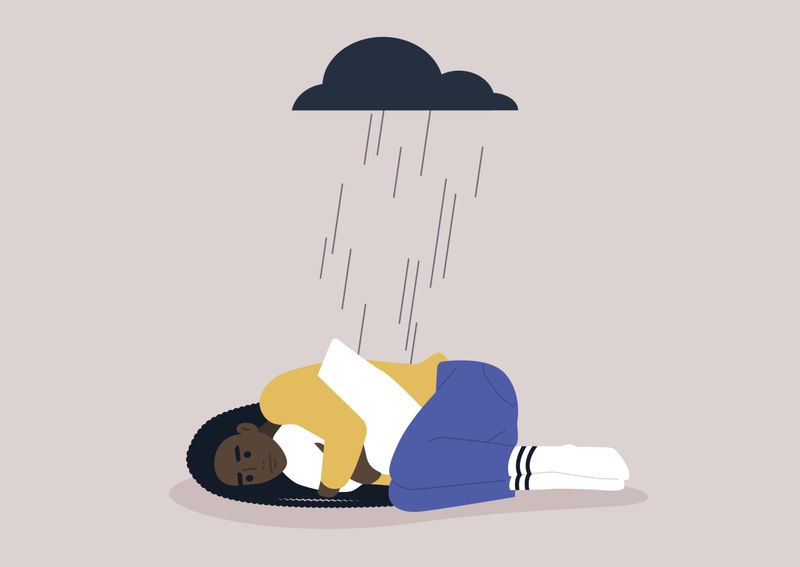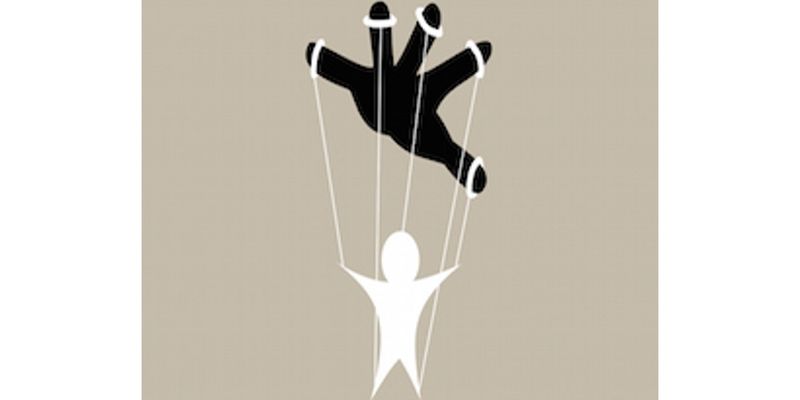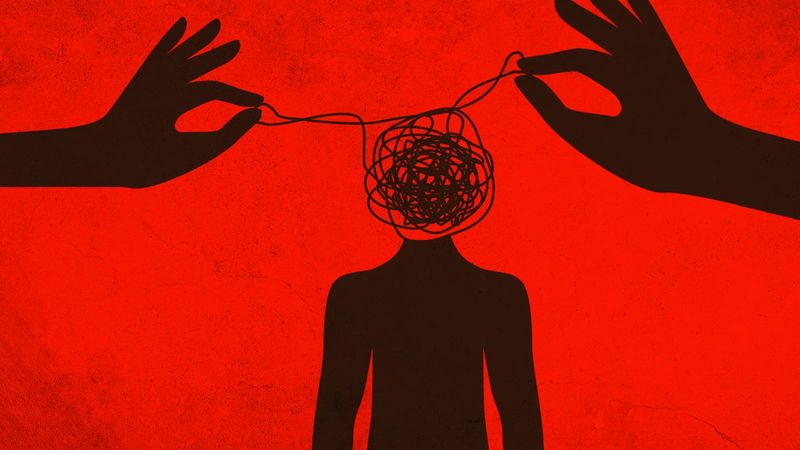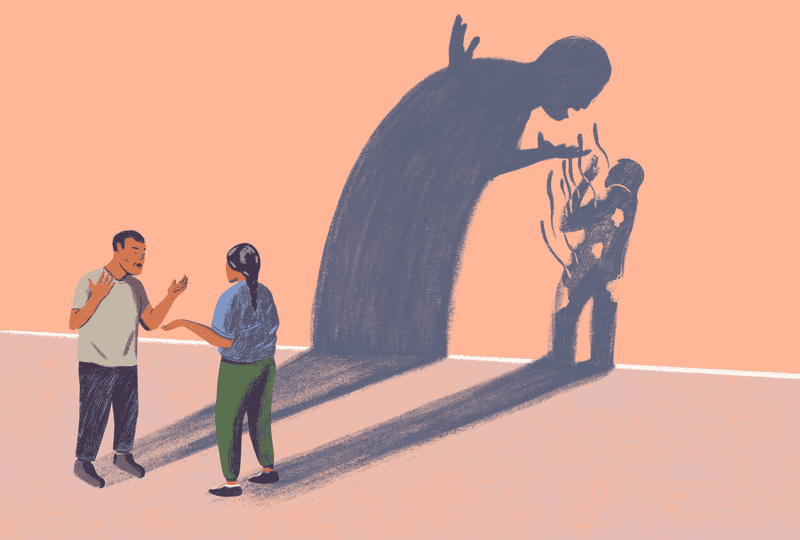Ever walked away from a conversation feeling like your soul just ran a marathon, and you didn’t even get a medal? Yep, that’s what it’s like hanging out with energy vampires. You know the ones—they leave you feeling like a phone stuck at 3% battery, desperately searching for a charger (or an excuse to leave).
The good news? You’re not alone, and you’re definitely not crazy for wanting to reclaim your peace. Here are sixteen oh-so-familiar—and now, gloriously rejectable—behaviors that used to sap your energy. Ready to laugh, cringe, and maybe spot a few past “friends” on this list?
Let’s start shedding old expectations and make room for real sanity (and probably more naps).
1. Negatividade constante
Imagine every conversation is like tuning into a weather channel that only predicts storms. That’s what it feels like dealing with someone who finds a gray lining in every silver cloud. No matter how many good things you share, they’ll turn it into a horror story faster than you can say, “It’s not that bad.”
You used to nod along, trying to offer a patch of sunlight in their downpour, but all it did was leave you drenched. Now, you recognize that you don’t need to sign up for their daily gloom report. Your new forecast? Occasional distance, with a high chance of inner peace.
Plus, it’s frankly exhausting reminding someone that yes, puppies exist, and sometimes life is actually delightful. Who knew optimism could be so rebellious?
2. Excessive Complaining
Ever felt like you were hired as someone’s personal complaint box? Some people never met a situation they couldn’t grumble about. They’ll complain about Mondays, traffic, even the weather app being wrong—again.
There was a time when you thought listening was helpful, but now you recognize the difference between supporting someone and being their emotional landfill. You’ve learned that it’s perfectly okay to redirect the conversation, or even excuse yourself for some well-earned peace.
The best part? Realizing that life is too short to spend it marinating in other people’s grievances. Now, you’re all about solutions—or at the very least, silence.
3. Playing the Victim
Some folks have a black belt in self-pity. No matter what happens, life is always out to get them, and you’re often cast as their therapist—or worse, the villain.
Being the default shoulder to cry on sounded noble until your own emotional well ran dry. Now, you know that someone else’s inability to own up isn’t your cue to play savior. There’s liberation in retiring from unsolicited rescue missions.
It’s freeing to realize you can support people without joining their one-person pity parade. Your empathy can now clock out at reasonable hours—and honestly, it’s about time.
4. Need for Control
Ever had a friend who turns every get-together into a military operation? From dinner reservations to bathroom breaks, nothing escapes their iron grip on the itinerary.
You used to go along for the sake of harmony, but somewhere between the third “Can you please stick to the plan?” and realizing you have free will, you hit your limit. Now, you opt out of micromanagement marathons and choose spontaneity—or, you know, just breathing freely.
It’s a relief to remember that nobody gets a trophy for Best Event Dictator. Your RSVP these days? Only to gatherings that don’t require a permission slip for fun.
5. Inability to Compromise
Some people treat compromise like it’s a contagious disease. Everything must go their way or not at all—end of story, no room for negotiation.
You’ve spent enough evenings forfeiting your turn so they could win (again). Now, you realize that anyone allergic to give-and-take isn’t your problem to fix. You’re allowed to advocate for your own needs without dreading an all-out war over pizza toppings.
The simple pleasure of picking the movie or splitting the last slice is suddenly revolutionary. Turns out, compromise is not a crime—and you’re loving it.
6. Emotional Manipulation
Ever noticed how some people can twist your emotions into balloon animals? Emotional manipulators have an uncanny knack for using guilt, shame, or confusion to keep you on their leash.
It took time, but now you recognize when someone’s not genuinely upset—they’re just working the strings. Stepping off that stage and declining the lead in their guilt-trip drama is the best act of self-care you’ve ever performed.
Who knew freedom could feel this good? You’ve traded in your puppet strings for boundaries, and the show goes on—without you as the main act.
7. Lack of Empathy
Picture this: you’re pouring your heart out, and they respond with a joke or a blank stare. That’s peak lack of empathy, and it used to leave you feeling both exposed and ignored.
After a while, you get tired of explaining emotions to someone who treats feelings like a foreign language. Now, you know it’s not your job to provide subtitles for your heart. Some people just aren’t tuned into your frequency, and that’s okay—you can stop trying to adjust their dial.
Letting go of the need for their understanding is liberating. You save your deepest thoughts for those who don’t need them spelled out.
8. Blaming Others
Ever met someone whose favorite sport is blame-shifting? If there’s a problem, it’s always someone else’s fault—never theirs. You used to jump in, trying to fix things or take partial heat, just to keep the peace.
But, let’s be real, dodging responsibility doesn’t count as cardio. These days, you let people own their mistakes, even if it means a few more awkward silences in the team chat.
You’re not the designated scapegoat, and that’s a freeing realization. Now, your shoulders are a little lighter—and honestly, your back thanks you.
9. Comportamento passivo-agressivo
The fine art of saying one thing and meaning another—passive-aggressive behavior should honestly have its own Olympic category. You used to decode every sigh, eye-roll, and cryptic message, convinced you could smooth things over.
But here’s the plot twist: you’re not a mind reader, and you’re tired of playing the game. Calling out indirect digs or simply stepping away is your new power move, and it feels oddly heroic.
Your new motto? If you can’t say it straight, don’t say it at all. It’s amazing how much clarity comes from, well, actual clarity.
10. Inconsistent Moods
Mood swings can turn brunch into an emotional rollercoaster. One minute, you’re sharing a meme, the next, you’re navigating stormy silence—and it’s not always clear what set it off.
For a while, you thought it was your job to keep everyone happy, walking on eggshells just to avoid triggering another meltdown. But you’ve realized you’re not responsible for other people’s emotional weather.
It’s okay to step back and let people ride their own rollercoasters. You prefer your eggs sunny side up, not scrambled by someone else’s chaos.
11. Dependence on Others for Happiness
Some people treat your presence like an emotional life jacket. If you’re not constantly reassuring them, they act like they’re sinking—fast. You used to offer endless pep talks, but the emotional lifeguard gig got old.
Now, you know it’s not your responsibility to keep someone else afloat, especially if they refuse to learn to swim. You’ve learned that your own happiness doesn’t hinge on rescuing others from their waves.
The best part? Watching your own relationships thrive when you stop playing savior and start showing up for yourself. There’s room on your blanket for company, but you’re not carrying anyone else’s picnic basket.
12. Expectativas irrealistas
If you’ve ever been handed a list of expectations that reads like Santa’s “naughty or nice” ledger, you know this type. You used to bend over backwards trying to meet impossible standards—always available, always perfect, never saying no.
But you’ve retired from the circus act. Saying “I can’t do it all” is your new party trick, and it feels even better than juggling flaming torches. (And let’s face it, it’s much safer.)
Setting boundaries doesn’t make you the Grinch. It makes you someone who values their energy—and that’s a gift worth unwrapping.
13. Overdramatic Reactions
Some folks can turn a paper cut into a Shakespearean tragedy. You used to play along, acting as the peacemaker and offering tissues for every minor disaster.
Now, you’ve swapped your drama subscription for a comedy special—and life is so much lighter. You realize not every spilled drink deserves a standing ovation or a monologue.
Your motto now? If it’s not life-altering, it’s probably not worth the stage lights. You’re saving your applause for real performances, not daily melodramas.
14. Ignorar os limites
People who treat boundaries like mere suggestions can leave you feeling invaded—even in your own space. You used to brush it off as “just their way,” but now you know better.
Defending your right to privacy isn’t rude; it’s necessary for sanity. You’ve traded forced politeness for gentle, firm reminders that your time and space matter, too.
Your inner peace thrives the moment you start locking the metaphorical (and sometimes literal) door. Turns out, boundaries are less of a wall and more of a welcome mat for respect.
15. Refusal to Take Accountability
No matter what goes wrong, they always manage to Houdini themselves out of responsibility. You spent years trying to help them see the light, but they’d rather stay in the dark and let you hold the flashlight.
Your breakthrough? Realizing you’re not an accountability coach on call. These days, you let people own their part—or not. Either way, you’re off the hook, and your emotional energy is finally getting a vacation.
It’s amazing what happens when you stop picking up what others refuse to carry. Lightness feels good on you.
16. Chronic Pessimism
Some people could win the lottery and still complain about taxes. Chronic pessimists always expect the worst, and hanging around them is like living in a never-ending gloom forecast.
For years, you tried to offer the bright side, only to get shot down every time. Now, you know that optimism isn’t just an attitude—it’s your self-defense strategy. You choose to limit your exposure and keep your own hopeful spark alive.
Turns out, hope is contagious—but only if you’re not constantly quarantining it with someone else’s bad mood. Here’s to brighter days, no matter the weather.

















